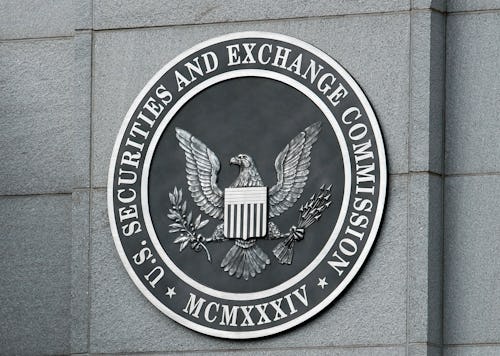Can the SEC shame companies into polluting less?
A new rule would require public companies to disclose the amount of greenhouse gas emissions they’re responsible for.

We know that the biggest corporations in the world are responsible for the vast majority of carbon emissions. Soon, they might actually be forced to admit it. A new rule from the Securities and Exchange Commission, officially proposed by the agency on Monday, will require companies to disclose the amount of greenhouse gas emissions they are responsible for producing.
If adopted, the new rule would add a number of climate-related disclosures that companies would be required to make on a regular basis. In addition to the actual amount of emissions that a corporation is responsible for producing, these businesses would also have to disclose climate-related risks that their operations face and how they are addressing them.
This is a big deal. Some companies already make these disclosures willingly, but many still obfuscate them. These rules would make that harder, especially thanks to a little clause that includes Scope 3 emissions.
Scope 3 emissions are the emissions that are the result of activities from assets not owned or controlled by the reporting company — so basically, the result of actions by the companies that a corporation is doing business with. This has historically been used as a loophole, particularly by Big Oil companies that would pledge to achieve net-zero emissions while intentionally excluding the emissions of mining, manufacturing, and transportation done through third parties and contractors. It also doesn’t count how that oil and gas is used, so the companies aren’t held accountable for all the emissions created from burning that fuel. The new SEC rule would create a path toward actually pinning those emissions on the companies responsible for them.
The proposal seems likely to go forward, but even if it does companies wouldn’t have to start making disclosures until 2023 at the earliest. That might be just enough time for corporations to clean up their act enough to avoid complete public embarrassment. Let’s see just how well bullying works.